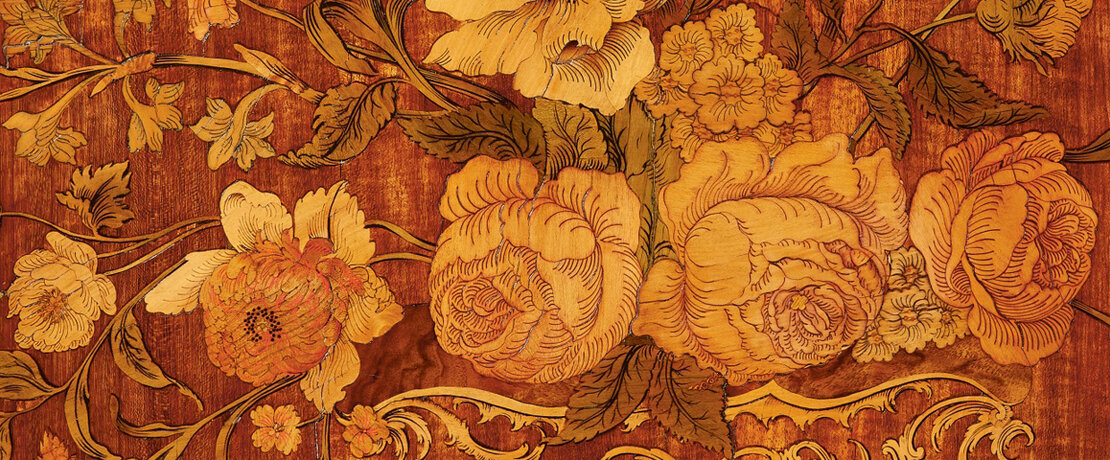Fit for a King - Furniture by Abraham und David Roentgen
In its 175th jubilee year, Lempertz is proud to have had the opportunity to present the most important auction of Roentgen furniture in Germany since the war. Roentgen furniture from Neuwied has stood as an international term for quality for 250 years. Presented in a luxurious special catalogue, the collection comprised 16 superb pieces of furniture and boxes from two of the most significant German ebenists of the 18th century, and was almost completely sold to great success.

A small selection of the results of the collection follows:
One highlight of the auction with € 375,000 was the fantastic early writing cupboard by Abraham Roentgen, the front displaying stunning flower marquetry (lot 407, € 300/400,000). There was success also for a writing desk by David Roentgen of Neuwied from around 1785 which transferred into an overseas’ collection for € 263,000. The piece also boasted a special provenance, having once supposedly belonged to Emperor Wilhelm II (lot 402, € 150/200,000).
The finely-worked boxes were also sought-after, selling to private collections for between € 31,000 and € 37,000.
The workshop, run by Abraham Roentgen in Neuwied from 1750 and taken over by his son David in 1772, was the most famous of its epoch in Europe. In the 50 years up to around 1800, the two cabinet makers produced the most technically sophisticated but also the most elegant and most beautiful of German furniture. Illustrious clients included Friedrich II (the Great) of Prussia, Marie Antoinette, Queen of France, and Tzarina Catherine the Great, as well as numerous members of the European high nobility.
Abraham Roentgen was inspired by the products he saw on his early travels to London and the Netherlands, providing ideas for his own creations, such as the five precious boxes offered in the auction, useful for storing not only tea but other treasures. Even the earliest and smallest object testifies to the highly individual, striking, and sophisticated profile of his workshop.
His son David concentrated on a new marketing concept and ultimately moved away from the Late Baroque canon of forms. His furniture is characterised by a classicist simplicity, the unique surfaces created by the most precious veneer woods, the finest coloured marquetry and elegant gilt bronzes.
